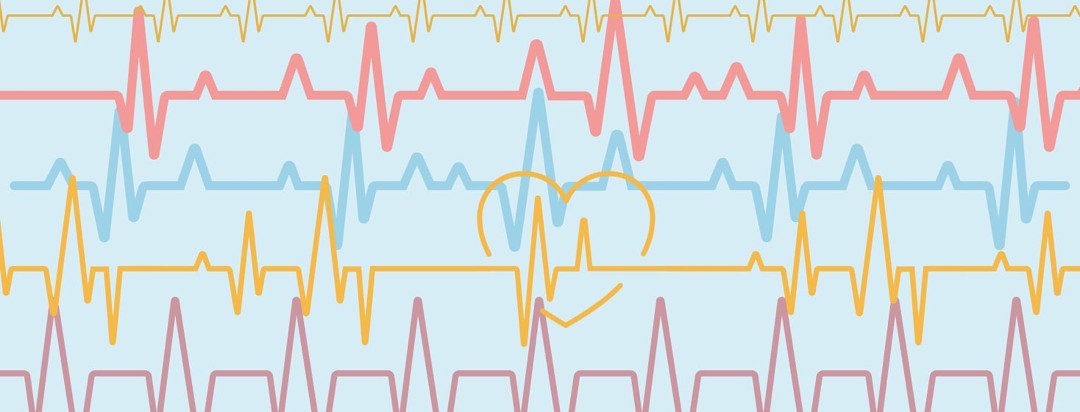What Is an EKG?
I am a respiratory therapist. One of the tests I perform is an EKG. It’s actually a very simple test. If you have heart failure, chances are you’ve had one done before. So, what is an EKG anyway? Why are they performed? What are doctors looking for? Here’s what to know.
What is an EKG?
Your heart is a muscle. It contains four chambers. In the top right chamber of your heart is what is called the S/A Node. This is the proper name for your pacemaker. When it goes off, it sends an electrical current through your heart.
The pacemaker is in your right atria. It goes off sending an electrical impulse to both atria at the same time. They contract and force blood to your right and left ventricles. The impulse then travels to both ventricles at the same time. The contract sends blood to your lungs and to all the tissues of your body.
An EKG allows doctors to monitor the path of this electrical current through your heart. An EKG shows how this electrical current flows through your heart. It essentially monitors your heart's electrical activity.
What does the test involve?
An EKG is one of the simplest tests that we perform in the hospital. It takes anywhere from 2-10 minutes. What we do first have you lie down on your back. Sure, we can put the head of the bed up if you want. Some clinics may have special recliners for you to lie back into.
On your chest, we will place six stickers. We start on the right side of your chest to your left. Two more stickers go on your right and left arm or shoulder. Two more go on your left and right legs. These leg stickers may also be placed on your abdomen.
Twelve leads are then attached to these stickers. These leads are attached to the EKG machine. It’s a small machine usually on wheels. I will then have you lie still. I will then push a button. The machine will record the EKG over a 6-second period. It’s that fast.
Your EKG is then looked at by a doctor.
What does an EKG show?
There are various things an EKG can show.1
- Your heartbeat is normal. This is the goal when I do an EKG. We want everything to be perfect.
- Your heartbeat is too fast. Anything over 100 beats per minute (BPM) is considered fast. The cause may be simple, such as a fever. In this case, treatment is anything to reduce fever. Of course, the cause could also be anxiety from being in the doctor’s office. There are also other causes, some of these may require immediate treatment.
- Your heartbeat is too slow. Anything less than 60 BPM is considered slow. Some people may normally have a slow heart rate. This may be true for people who run a lot. Although, there are some causes that can be life-threatening and need to be treated right away.
- You have an irregular rhythm. The most common one you will find in this community is atrial fibrillation. Another one you may hear at times is atrial flutter. These are a couple of irregular rhythms that can be spotted on an EKG. In many cases, these rhythms can be fixed with proper treatment. Sometimes an “irregular rhythm” may become “normal for you.” There are also other irregular rhythms a doctor can spot by looking at your EKG.
- You’re having a heart attack. A medical term for this is myocardial infarction. It means a part of your heart isn’t receiving enough oxygen. Some heart tissue may die. It can also show where in your heart this is happening. If spotted, this is treated as a medical emergency. If you complain of chest pain, expect to have an EKG done.
- Your heart is abnormally large. The flow of the electrical current may change if your heart is too large. This can happen in some people with chronic lung diseases, like COPD or cystic fibrosis.
- Your electrolyte balance is off. Electrolytes that can affect your heart are calcium, magnesium, and potassium. So, if they are too high or too low this can show up on your EKG.
- Something else wrong is going on. There are other things that can be learned. For example, some medications can affect your heart rhythm. So, while on certain medicines, your doctor may schedule you for occasional EKGs. This is done just to make sure your heart is not being affected by the medicine. The test may also be used to help diagnose conditions like pulmonary embolism. So, there are lots of uses for EKGs. Lots of information can be obtained.
Quick test, a ton of information
An EKG may be ordered on a routine basis. This is often a part of annual well-visits for people over the age of 40 or with a personal or family history of heart disease. It can also be performed when you present to a doctor with symptoms such as dizziness, chest pain, or chest tightness. It's an easy test that only takes a few minutes of your time. It can give your doctor a ton of information about the status of your heart.

Join the conversation